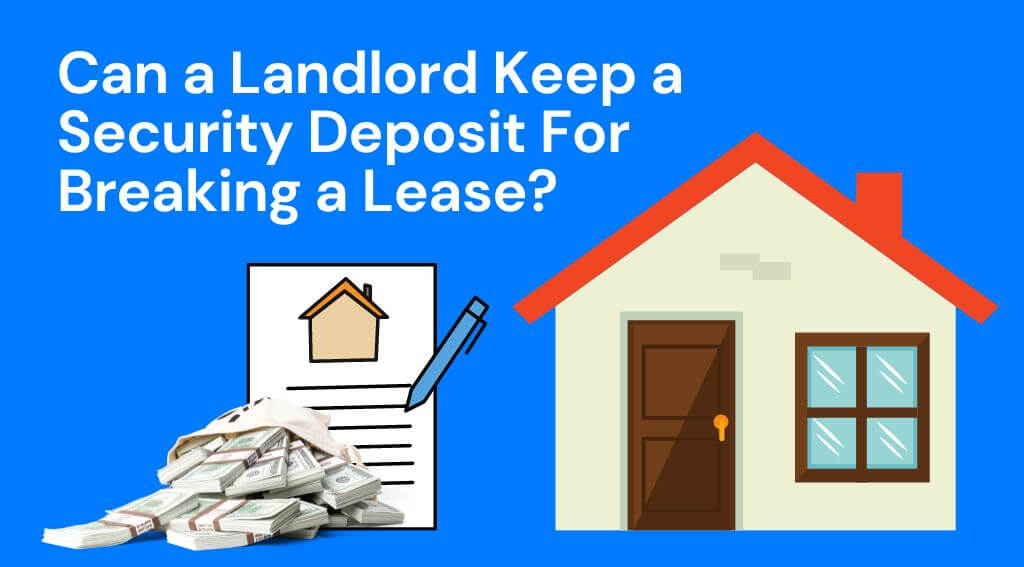
Thinking about ending your lease in the Garden State? Strap in, because the roller coaster ride that is the lease termination process in New Jersey is about to begin. From deciphering confusing legal jargon to dealing with your landlord’s sudden case of amnesia about that hole in the wall you definitely did not make, you’re in for a wild ride. So grab your snacks, hold on tight, and get ready to navigate the ups and downs of breaking up with your lease in the quirkiest state in the country.
Understanding Lease Termination Laws in New Jersey
So you’ve decided it’s time to move on from your current living situation in the Garden State, but you’re not quite sure about the ins and outs of lease termination laws in New Jersey. Well, fear not! We’re here to break it down for you in a way that won’t put you to sleep.
First and foremost, it’s important to know that a lease is a legally binding contract between you and your landlord. Breaking that contract can have serious consequences, so it’s crucial to understand the rules before you make any moves.
Here are a few key things to keep in mind when it comes to lease termination in New Jersey:
- Landlords must provide at least 30 days’ notice before terminating a month-to-month lease.
- If you’re breaking a lease early, you may be responsible for paying rent until a new tenant is found or the lease term ends.
- Make sure to document the condition of the rental unit when you move out to avoid any disputes over security deposit refunds.
Remember, the key to a smooth lease termination is communication and understanding. So, if you’re feeling overwhelmed, don’t hesitate to reach out to a legal professional for guidance. And most importantly, don’t forget to change your address with the post office – you don’t want your security deposit check getting lost in the mail!
Key Factors to Consider Before Terminating a Lease
So, you’re thinking about terminating a lease, huh? Before you do anything drastic, let’s consider a few key factors that might just save you from making a decision you’ll regret later on.
First off, take a look at the lease agreement itself. Is there a clause in there that outlines the specific conditions under which you can terminate the lease? Make sure you understand all the terms and conditions before you jump the gun.
Next, think about the consequences of terminating the lease. Are you prepared to potentially lose your security deposit or face legal action from your landlord? Consider all the possible outcomes and weigh your options carefully.
Lastly, don’t forget to consider alternative solutions. Is there a way to negotiate with your landlord to find a compromise? Can you sublease the property instead of terminating the lease altogether? Get creative and think outside the box!
Steps to Take When Terminating a Lease in New Jersey
So, you’ve decided to end your lease in the Garden State, huh? Well, you better be prepared for the wild ride that is terminating a lease in New Jersey. Here are some steps you can take to make sure you don’t end up in a landlord-tenant feud that rivals the Hatfields and the McCoys.
First things first, you’ll want to review your lease agreement to see what it says about ending the lease early. Make sure you understand the terms and conditions, because you don’t want to be caught off guard when your landlord starts quoting obscure clauses like a villain in a legal drama.
Next, you’ll need to give your landlord written notice of your intent to terminate the lease. Make sure to include the date you plan to move out and any other relevant information. You don’t want your landlord showing up on moving day like an unexpected guest at a party.
Once you’ve given notice, schedule a walkthrough with your landlord to inspect the property and discuss any potential damages. Be prepared to negotiate, but remember to stand your ground like a Jersey Shore cast member in a bar brawl.
Dealing with Security Deposits and Lease Violations
So, you’ve found yourself in a sticky situation with your landlord. Maybe you accidentally painted the walls hot pink instead of the agreed upon beige, or perhaps your pet goldfish turned into a wild party animal when you weren’t looking. Whatever the case, it’s important to know how to handle security deposits and lease violations like a pro.
First things first, take a deep breath and remember, it’s not the end of the world. You can handle this! Here are some tips to help you navigate the murky waters of security deposits and lease violations:
- Know your rights: Familiarize yourself with your lease agreement and state laws regarding security deposits and lease violations. Knowledge is power, my friend!
- Communicate: Don’t hide from your landlord like a ninja in the night. Be open and honest about what’s going on and work together to find a solution.
Remember, at the end of the day, is just another hurdle in this crazy game called adulting. So put on your big kid pants, face the music, and handle it like the responsible, mature individual you are (or at least pretend to be).
landlords-during-the-termination-process”>Handling Disputes with Landlords During the Termination Process
So, you’re at the point in your rental agreement where things are starting to go south with your landlord. Don’t worry, it happens to the best of us! Here are a few tips on how to handle disputes during the termination process:
First off, communication is key. Before things escalate, make sure to communicate openly and honestly with your landlord. Remember, they’re just humans too (even though sometimes it may not feel like it). Try to have a civilized conversation and see if you can reach a compromise that works for both parties. Maybe offer to do some extra cleaning or fix that wonky door handle to smooth things over.
If the communication route doesn’t work, it might be time to bring in a neutral third party. Consider hiring a mediator to help facilitate the conversation and find a resolution that works for everyone. Plus, it’s always fun to have a referee in the mix, right?
And if all else fails, it might be time to dust off those negotiation skills. Get ready to put on your game face and negotiate like a boss. Who knows, you might just come out of this with a better deal than you originally had. Remember, it’s all about the art of the deal (and maybe a little bit of luck).
Resources for Tenants Seeking Legal Assistance in Lease Terminations
Looking to get out of your lease and need some legal assistance? Look no further! Here are some resources to help you navigate the murky waters of lease terminations:
- **Local Tenant Rights Organizations**: These groups specialize in helping tenants understand their rights and provide legal assistance when needed.
- **Legal Aid Services**: Many communities offer free or low-cost legal services for tenants facing lease termination issues. Don’t be afraid to reach out for help!
- **Online Legal Resources**: Websites like LegalZoom and Rocket Lawyer offer valuable information and tools for tenants dealing with lease terminations.
Remember, knowledge is power! Arm yourself with the right information and legal assistance to ensure you come out on top when dealing with lease terminations.
FAQs
What happens if I break my lease early in New Jersey?
Well, breaking a lease early in New Jersey is a bit like breaking up with your significant other via text message – it’s messy, it’s painful, and there may be consequences. You’ll likely have to pay a hefty fee known as an early termination fee, which can range from one to two months’ worth of rent. You may also be on the hook for rent until the landlord finds a new tenant, so prepare to open up that wallet wide.
Can I get out of my lease early if my apartment is infested with pests?
Ah, pests – the uninvited guests that never seem to leave. If your apartment is infested with pests in New Jersey, you may have grounds to break your lease early. The key is to document the infestation thoroughly and notify your landlord in writing. If they fail to address the issue within a reasonable amount of time, you may be able to terminate your lease without penalty. Just make sure to have a professional pest control company confirm the infestation to cover your bases.
What steps do I need to take to terminate my lease in New Jersey?
Terminating a lease in New Jersey is like trying to navigate through a maze blindfolded – it’s confusing, frustrating, and you may end up bumping into a few walls along the way. First, check your lease agreement for any specific termination requirements, such as giving a certain amount of notice or paying a termination fee. Then, notify your landlord in writing of your intent to terminate the lease and make sure to keep a copy of the written notice for your records. Finally, schedule a walk-through inspection with your landlord to assess any damages and make arrangements to return the keys.
Happy Trails, Tenants
So, there you have it - the ins and outs of navigating the lease termination process in New Jersey. Now that you’re armed with this knowledge, go forth and conquer the world of tenanthood. Remember, when in doubt, always read the fine print. And whatever you do, don’t forget to leave your apartment keys on the kitchen counter before you peace out. Happy trails, tenants!










